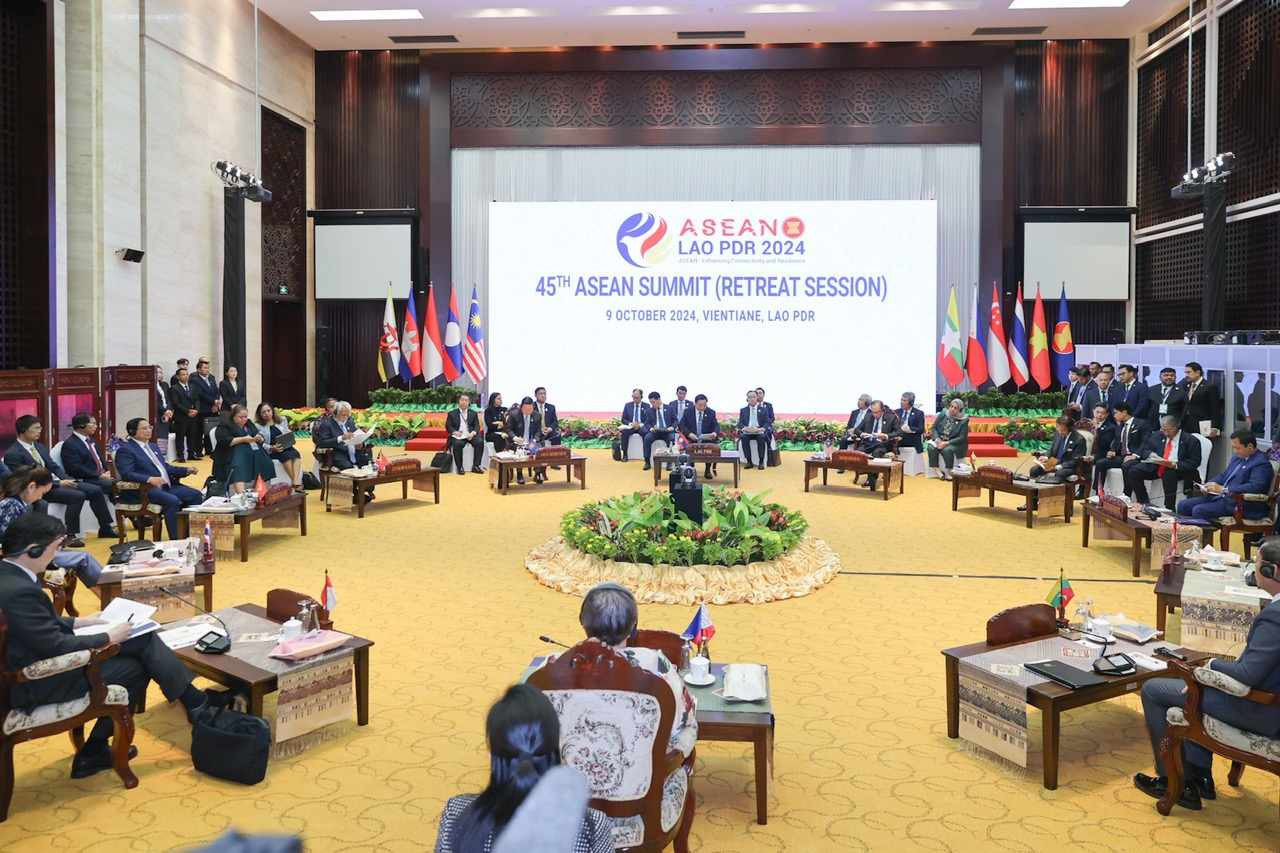On October 9, as part of the ongoing ASEAN Summit in Laos, Prime Minister Pham Minh Chinh and leaders of ASEAN and Timor-Leste convened for a closed session to discuss pressing international and regional issues.

The leaders acknowledged that rapid shifts in the global and regional security landscape have created both opportunities and challenges for ASEAN. Geopolitical tensions, conflicts, and instability continue to erupt worldwide, with persistent economic risks and escalating challenges such as climate change, natural disasters, and cybersecurity threats.
Despite these difficulties, the leaders noted new growth drivers that could offer fresh opportunities for ASEAN and its partners. They highlighted the strategic importance of fostering greater connectivity and resilience, stressing that ASEAN must remain united and confident in seizing opportunities and overcoming challenges.
On international issues, particularly the East Sea, the leaders reaffirmed ASEAN's principled stance on respecting international law and peacefully resolving disputes. They emphasized the need to uphold UNCLOS 1982 as the basis for maintaining peace and stability in the region.
Additionally, the leaders praised the efforts of the Lao Chair and the Special Envoy of the Chair on Myanmar, underscoring the importance of the Five-Point Consensus as a guiding document for ASEAN’s efforts to assist Myanmar.
In his address at the session, Prime Minister Pham Minh Chinh shared his insights on the current global situation. He acknowledged that while peace is a prevailing trend, localized conflicts and wars continue to disrupt, causing supply chain breaks and increasing the costs of raw materials, energy, and transportation.
Prime Minister Pham Minh Chinh urged ASEAN to stay united and to use its collective voice to call for an end to war and conflict, pushing for solutions based on respect for international law.

On the East Sea, the Prime Minister reiterated the need for peaceful solutions to territorial disputes, based on international law, particularly UNCLOS 1982. He urged all parties to respect the sovereignty and rights of the concerned nations.
Furthermore, Prime Minister Pham Minh Chinh emphasized the importance of ensuring security, freedom of navigation, and overflight in the East Sea, a vital global shipping route that handles 60% of the world’s trade. He proposed that ASEAN countries must remain united, consolidate their central role, and uphold a common stance on the East Sea.
Regarding the situation in Myanmar, the Prime Minister acknowledged the contributions of the Lao Chair in 2024 and previous rotating chairs in supporting Myanmar’s efforts toward a solution based on the Five-Point Consensus. However, he noted that progress has been limited, indicating that ASEAN may need a new approach.
Prime Minister Pham Minh Chinh expressed his support for many of the solutions proposed by ASEAN members. He reiterated that the resolution to Myanmar’s crisis must come from within, with the people of Myanmar making their own decisions.
He called for dialogue and negotiation between the parties in Myanmar to end the conflict and minimize harm to the population, while also addressing broader security concerns such as cross-border crime and online fraud.
In this context, the Prime Minister urged the relevant parties in Myanmar to work together to find a solution, with ASEAN playing a central role in facilitating dialogue and negotiation. He stressed that ASEAN must reinforce its unity and central role in these efforts.
These values, he noted, have been key to ASEAN’s success and credibility, enabling it to overcome difficulties and challenges and become a hub of peace and cooperation.
Quang Phong